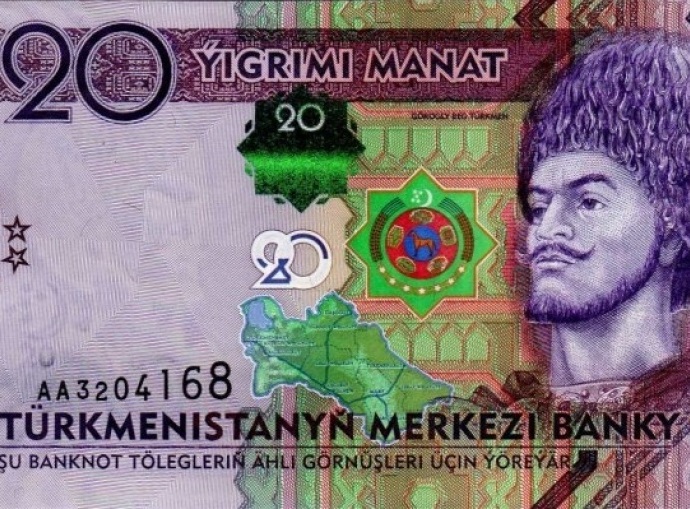Turkmenistan's sick economy
In the International Monetary Fund's report, the ills that have always made growth impossible in Ašgabat re-emerge: the 'black accounting' of the Berdymukhamedov regime, in which the revenues from the sale of gas and oil are not shown, and the black market in manat, the local currency, which unloads all the burdens and imbalances onto the shoulders of the population.
Ashgabat (AsiaNews) - The International Monetary Fund has published the report with the assessments of the mission to Turkmenistan, held between March 27 and April 9 under the leadership of Anna Bordon, to analyze changes in the country's economy.
The conclusions are not encouraging: in 2023 there was a sharp slowdown in growth which did not go beyond 2%, and not the 6.3% declared by the Ashgabat authorities. A critical factor is the difficulty in adequately using the proceeds of the hydrocarbon sector, in addition to the lack of a real reform of the monetary and credit system, with the persistence of a double currency exchange rate, the official one and that of the black market.
The Turkmen political scientist Kumuš Bajriev commented on the IMF data in Azatlyk, which he defined as a "diagnosis" which is certainly not new, indeed it is repeated regularly and reiterates the "recipes" for healing from illnesses that appear chronic, trying to convince the management of the country to change the economic model, which is decidedly unsuitable for the needs of the population.
The double currency between the variable exchange rates of manat and dollar is largely a Soviet legacy which weighs heavily on the real economy, given that only the large "bosses" are able to convert money into real assets, while for small and medium-sized enterprises remain a closed circle of attempts to survive in a market that is not developing.
The main problem according to Bajriev remains the government's economic policy, which "places all the burdens and imbalances on the shoulders of the population". All the production of food, various items and services that are based on imports are offered at prices determined by the "black" rate of the dollar, i.e. the real one, while salaries and pensions are calculated on the official rate, making the capacity almost nil. of purchasing by families, who "remain chained to an extremely low standard of living".
According to official statistics, salaries increase regularly, but are actually lower than the cost of living, and discounts on social and municipal services and public transport are of little use.
As happened in the Soviet Union, to find out the real prices of products it is enough to go to the market or any bazaar, where everything refers to the real exchange rate of the dollar and is very little accessible to the large mass of people.
This is also dramatically true for the pharmaceutical sector, where apart from very few exceptions such as oncological medicines or those for hepatitis C, the rest of the drugs are sold at the average world prices and even higher, and many sick people are left without the necessary remedies .
The IMF report then highlights the "black accounting" of the Berdymukhamedov dynastic regime itself, in which revenues from the sale of gas and oil are not highlighted, in a chapter entitled "The President's Personal Pocket".
Despite superficial changes to the rules regulating this sector, the scheme remains the same: 20% of earnings are allocated to the state budget, while 80% remains uncontrolled at the disposal of the president (father and son). The rest of the budget is made up of tax collections and international payments, such as the fee for cargo planes flying over Turkmenistan's airspace.
Furthermore, no control by institutions and society is directed at the country's gold and currency reserves, how many they are and where they are located, whether they produce assets abroad or any other detail. Obviously the IMF insists on the "need for greater transparency", which applies to economic parameters, but also to the political and social management of Turkmenistan, and its over 7 million inhabitants.
09/10/2007
06/02/2023 09:20







.png)










